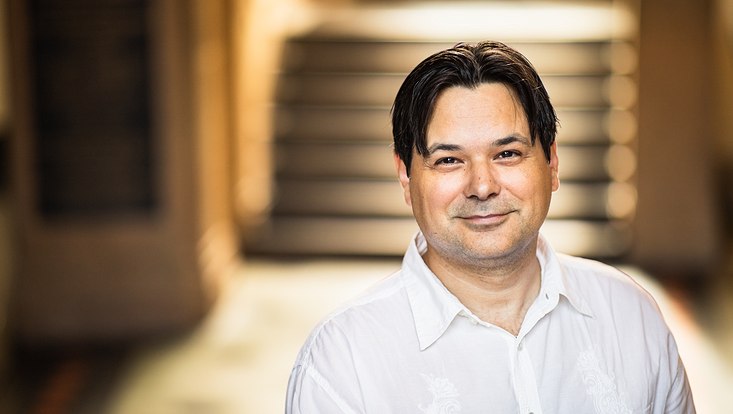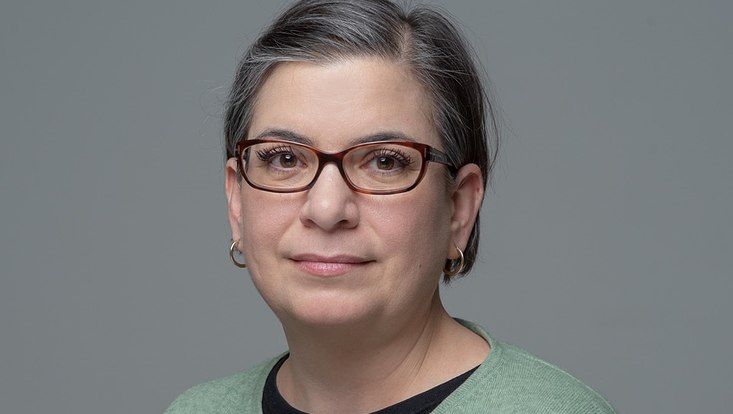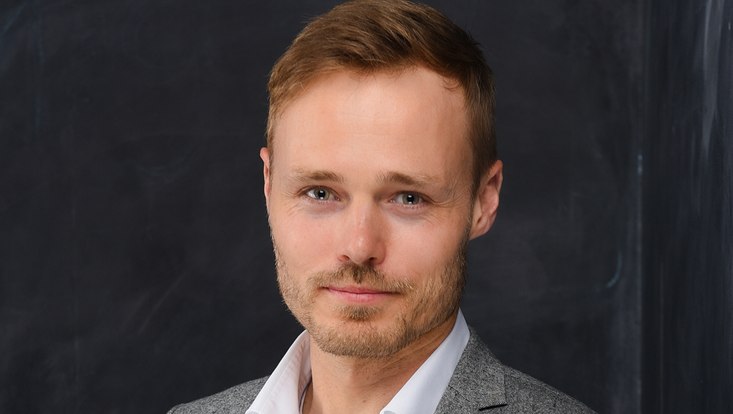Welcome aboard!On the Idea of Human HappinessProf. Dr. Jozef Müller strengthens the humanities.
23 August 2023, by Müller/Red.

Photo: UHH/Esfandiari
Every year, Universität Hamburg welcomes numerous new researchers. This series introduces them and their areas of research. This time: Philosopher Prof. Dr. Jozef Müller.
Prof. Dr. Jozef Müller was appointed professor of philosophy with a focus on ancient philosophy in Summer Semester 2023, coming from the University of California (Riverside).
My research area in 3 sentences:
I am interested in ancient theories of human psychology, particularly in the ways these theories influenced the ethical, political, artistic, and even scientific ideas of ancient philosophies, and how they were influenced in turn. My current project is a book on Aristotle, in which I am offering a new interpretation of Aristotle’s theory of human nature.
I am also working on an interpretation of Plato’s Protagoras dialog. I maintain that in this dialog, Plato is presenting a conflict, in this case, between two different ideas of what is means to think “virtuously”. That includes two perspectives on how we learn to think virtuously.
This is how I explain my research to my family:
We all want to be successful in life. That can influence whether we feel happy and well. We feel good when we believe that out lives really are going well, but we often also want this success to be recognized as such by others, like friends or family. In other words, we don’t just want a life in which we feel happy, but a life that is objectively good.
The ancient philosophers had many interesting ideas about how to achieve such a life. These ideas center largely on the belief that we need to develop certain knowledge, and certain character traits, known as virtues. I am trying to find out what in their opinion these virtues are, that is, what this knowledge looks like, and how we can acquire it.
In Hamburg, the city and the University, I am looking forward to:
I am looking forward to working with my colleagues, and the students who are interested in classical philosophy and philology, as well as for the history of philosophy in general. I spent a semester in Hamburg as a student in 2000, and I am very happy to be rediscovering the city, its landscape, its architecture, its rich culture, and its people.
These are my plans at Universität Hamburg:
I hope to work together with my new colleagues to offer a comprehensive range of seminars on ancient philosophy. I hope to reestablish Hamburg as one of the centers of ancient philosophy research in Germany.
This is why students should come to my lectures:
In my experience, studying the past is one of the best ways to better understand ourselves. And what part of the past is more promising in this regard than the many wonderful ways that people have tried to understand their world and their place in it? This is how I hope to show students in my classes on ancient philosophy, as well as other courses on the history of philosophy, how to find their own way into the adventure of thought.
Reaching out to the world: I work with the following international and federal institutions and universities:
Ancient philosophy is a very international discipline, and I am in contact with many wonderful colleagues all around the world, from Beijing to São Paulo, Oxford, and Cambridge. I also worked for 22 years in the USA and have many professional contacts and friendships there. I hope to be able to welcome some of them soon to Hamburg.
My research is important for society because:
Studying the history of philosophy, particularly ancient philosophy is important for many reasons. Without it, it seems it would impossible to understand, for example, how we developed the idea of individual human happiness, both in terms of its content as well as its significance for our lives. Ultimately, I think that we are maintaining human culture in all its beauty and ugliness through studying the history of philosophy because if we stop thinking and talking about it, it will slowly disappear.


